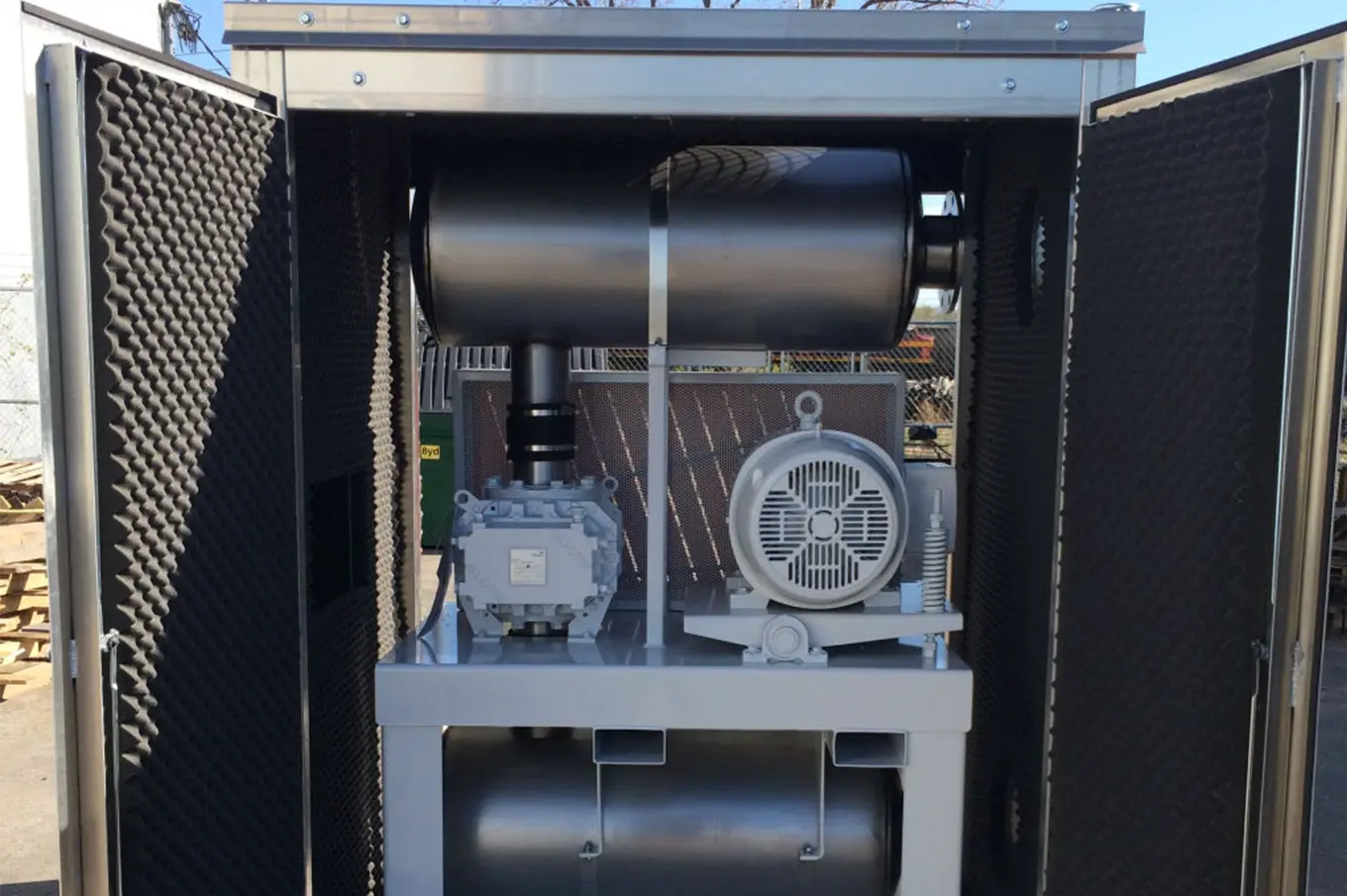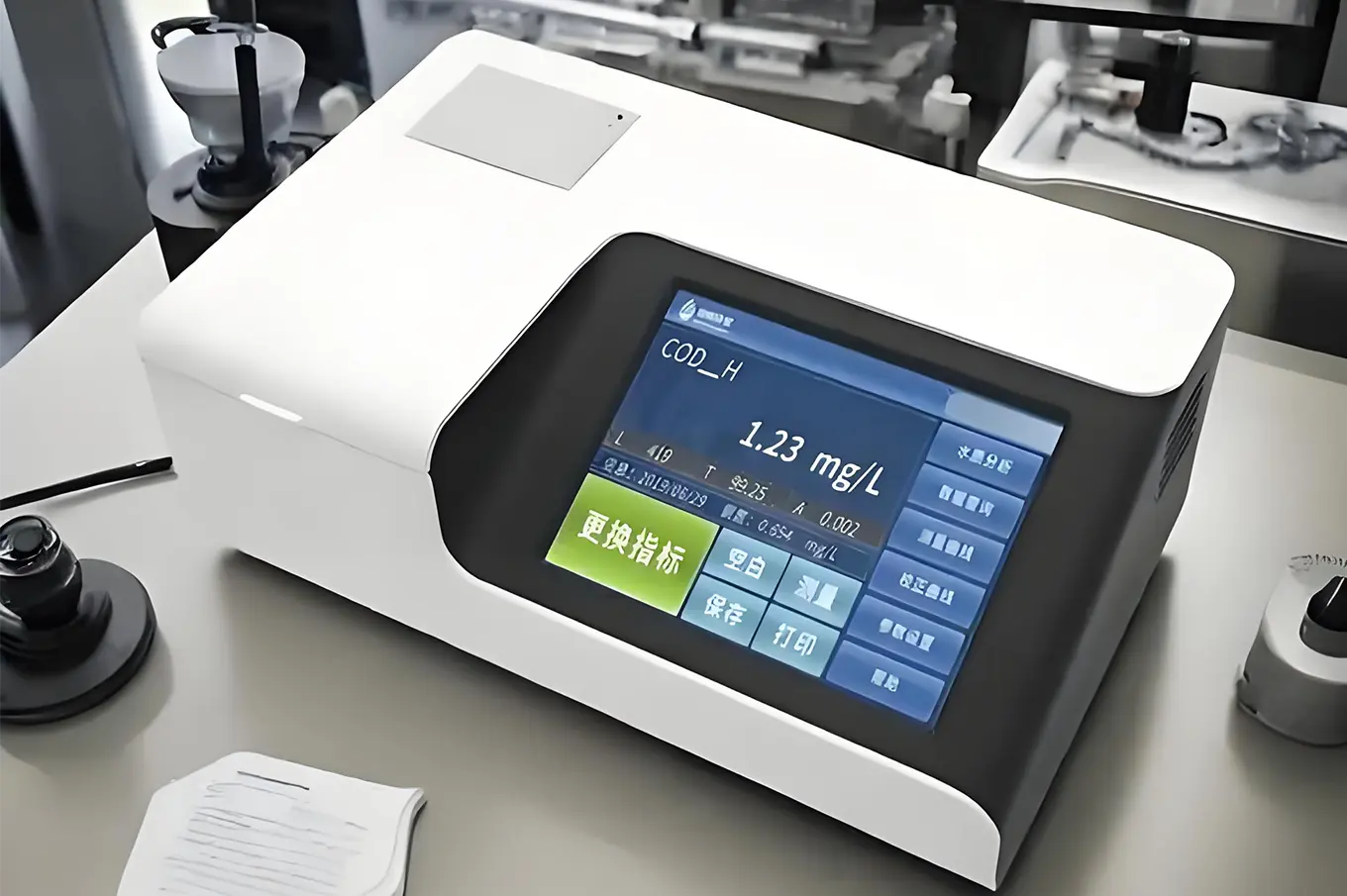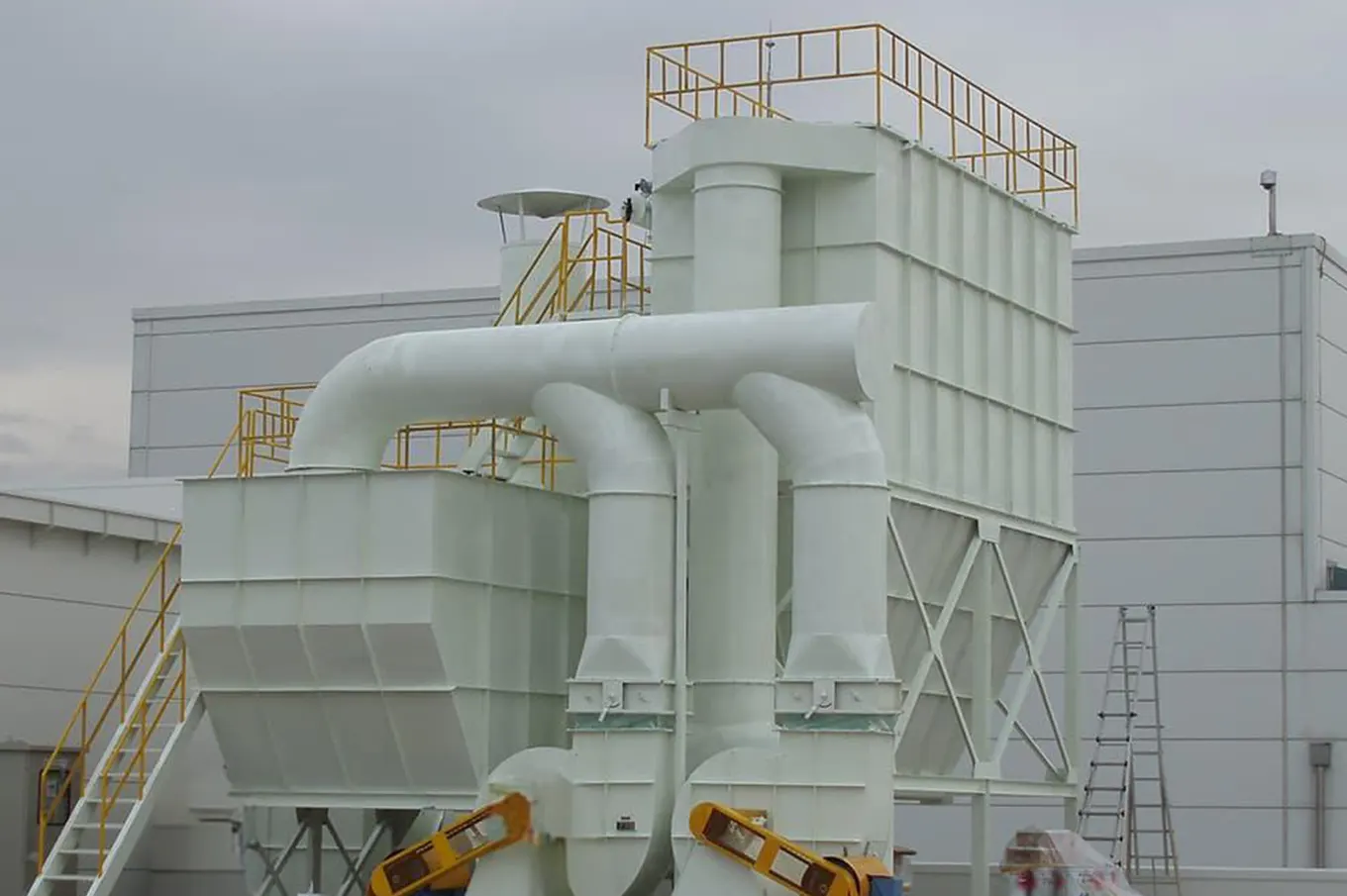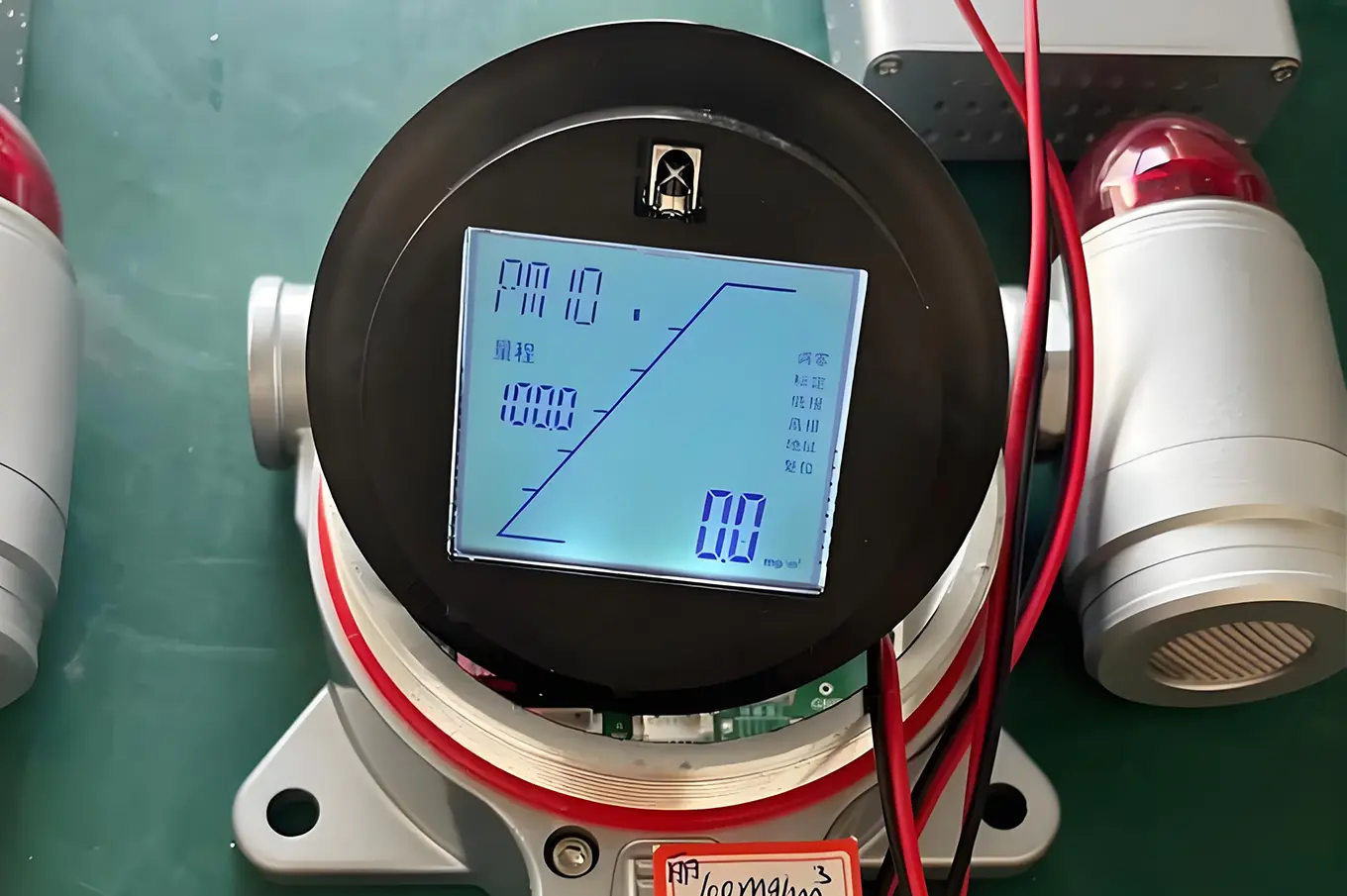- Shanghai Zhongshen International Trading Co., Ltd. – Your reliable partner with 20 years of import/export agency service expertise.
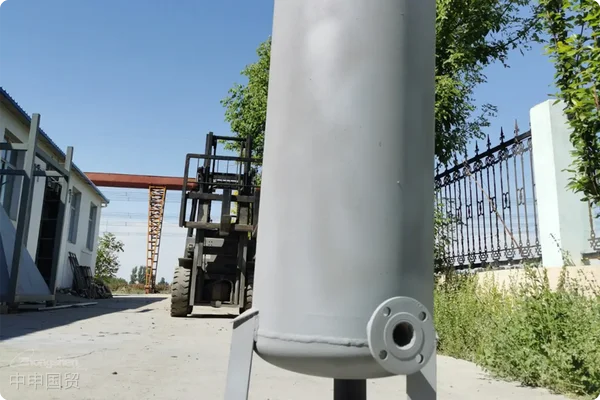
Export Oil-Water Separators to Wilhelmshaven: A Professional Trade Guide
1. Introduction
As an important environmental protection equipment, oil-water separators are mainly used for the treatment of industrial wastewater and oily wastewater from ships. They effectively separate oil-water mixtures through physical or chemical methods to meet environmental discharge standards. Wilhelmshaven, as Germany's only deep-water port and an important energy import hub, has shown strong demand in the fields of renewable energy and environmental protection technology in recent years, providing a broad market space for related environmental protection equipment.
In terms of customs classification, oil-water separators are usually classified into the following categories: 1. Machinery and equipment for oil and water separation. 2. Environmental protection equipment for oil and water separation. 3. Industrial machinery and equipment for oil and water separation. 4. Chemical equipment for oil and water separation. 5. Medical equipment for oil and water separation. 6. Agricultural machinery and equipment for oil and water separation. 7. Other machinery and equipment for oil and water separation.Chapter 84The following is the translation of the text into English, with a detailed explanation: ```python class Car: def __init__(self, make, model, year): self.make = make self.model = model self.year = year ``` This is the definition of the `Car` class. The `__init__` method initializes the attributes `make`, `model`, and `year`. ```python class Car: def __init__(self, make, model, year): self.make = make self.model = model self.year = year ``` This is the same definition of the `Car` class, but with annotations added. The `@property` decorator defines the `make`, `model`, and `year` attributes as properties, which can be accessed directly using dot notation (e.g., `car.make`). ```python class Car: @property def make(self): return self._make @property def model(self): return self._model @property def year(self): return self._year ``` This is the definition of the `Car` class with annotations and property decorators. The `@property` decorator defines the `make`, `model`, and `year` attributes as properties, which can be accessed directly using dot notation (e.g., `car.make`). However, the actual values are stored in the `_make`, `_model`, and `_year` private attributes, which are not directly accessible but can be accessed through the `make`, `model`, and `year` properties. ```python class Car: @property def make(self): return self._make @property def model(self): return self._model @property def year(self): return self._year ``` This is the definition of the `Car` class with annotations and property decorators, but with additional security measures implemented. The `@security` decorator defines the `make`, `model`, and `year` attributes as properties that can be accessed only through the `make`, `model`, and `year` methods. This ensures that unauthorized access to these attributes is prevented. ```python class Car: @security def __init__(self, make, model, year): self.make = make self.model = model self.year = year ``` This is the definition of the `Car` class with annotations and property decorators, but with additional security measures implemented. The `@security` decorator defines the `make`, `model`, and `year` attributes as properties that can be accessed only through the `make`, `model`, and `year` methods. This ensures that unauthorized access to these attributes is prevented. ```python class Car: @security def __init__(self, make, model, year): self.make = make self.model = model self.year = year ``` This is the definition of the `Car` class with annotations and property decorators, but with additional security measures implemented. The `@security` decorator defines the `make`, `model`, and `year` attributes as properties that can be accessed only through the `make`, `model`, and `year` methods. This ensures that unauthorized access to these attributes is prevented. ```python class Car: @security def __init__(self, make, model, year): self.make = make self.model = model self.year = year ``` This is the definition of the `Car` class with annotations and property decorators, but with additional security measures implemented. The `@security` decorator defines the `make`, `model`, and `year` attributes as properties that can be accessed only through the `make`, `model`, and `year` methods. This ensures that unauthorized access to these attributes is prevented. ```python class Car: @security def __init__(self, make, model, year): self.make = make self.model = model self.year = year ``` This is the definition of the `Car` class with annotations and property decorators, but with additional security measures implemented. The `@security` decorator defines the `make`, `model`, and `year` attributes as properties that can be accessed only through the `make`, `model`, and `year` methods. This ensures that unauthorized access to these attributes is prevented. ```python class Car: @security def __init__(self, make, model, year): self.make = make self.model = model self.year = year ``` This is the definition of the `Car` class with annotations and property decorators, but with additional security measures implemented. The `@security` decorator defines the `make`, `model`, and `year` attributes as properties that can be accessed only through the `make`, `model`, and `year` methods. This ensures that unauthorized access to these attributes is prevented. ```python class Car: @security def __init__(self, make, model, year): self.make = make self.model = model self.year = year ``` This is the definition of the `Car` class with annotations and property decorators, but with additional security measures implemented. The `@security` decorator defines the `make`, `model`, and `year` attributes as properties that can be accessed only through the `make`, `model`, and `year` methods. This ensures that unauthorized access to these attributes is prevented. ```python class Car: @security def __init__(self, make, model, year): self.make = make self.model = model self.year = year ``` This is the definition of the `Car` class with annotations and property decorators, but with additional security measures implemented. The `@security` decorator defines the `make`, `model`, and `year` attributes as properties that can be accessed only through the `make`, `model`, and `year` methods. This ensures that unauthorized access to these attributes is prevented. ```python class Car: @security def __init__(self, make, model, year): self.make = make self.model = model self.year = year ``` This is the definition of the `Car` class with annotations and property decorators, but with additional security measures implemented. The `@security` decorator defines the `make`, `model`, and `year` attributes as properties that can be accessed only through the `make`, `model`, and `year` methods. This ensures that unauthorized access to these attributes is prevented. ```python class Car: @security def __init__(self, make, model, year): self.make = make self.model = model self.year = year ``` This is the definition of the `Car` class with annotations and property decorators, but with additional security measures implemented. The `@security` decorator defines the `make`, `model`, and `year` attributes as properties that can be accessed only through the `make`, `model`, and `year` methods. This ensures that unauthorized access to these attributes is prevented. ```python class Car: @security def __init__(self, make, model, year): self.make = make self.model = model self.year = year ``` This is the definition of the `Car` class with annotations and property decorators, but with additional security measures implemented. The `@security` decorator defines the `make`, `model`, and `year` attributes as properties that can be accessed only through the `make`, `model`, and `year` methods. This ensures that unauthorized access to these attributes is prevented. ```python class Car: @security def __init__(self, make, model, year): self.make = make self.model = model self.year = year ``` This is the definition of the `Car` class with annotations and property decorators, but with additional security measures implemented.842121The tax code belongs to liquid filtration or purification machines. However, the classification of environmental protection equipment is often quite complex, and some devices with electrical control systems may be involved in it.Chapter 85For electrical equipment, while high-precision detection instruments might fall into the wrong hands.Chapter 90The category of measuring instruments poses a classification challenge for export enterprises.
In international trade, companies not only face complex customs classification, certification requirements, and logistics coordination, but also often suffer from a lack ofImport and exportDue to their qualifications, they are unable to directly accept foreign currency payments and handle related transactions.Tax Rebates, missing out on a significant source of profit.Zhong Shen International Trade Co., Ltd.As a professional import and export trade service provider, we are committed to addressing these core pain points for enterprises and providing a full-chain solution from qualification agency to capital flow management.
2. Market Status and Trends
As an important strategic node in Germany's energy transition, Wilhelmshaven shows the following characteristics in terms of its demand for environmental protection equipment:
- Stringent environmental standardsGermany and the European Union have extremely strict technical standards and emission requirements for environmental protection equipment such as oil-water separators. Products must comply with relevant directives and standards.
- The demand for the energy industry is boomingAs an energy port, the petrochemical, shipbuilding, and other industries surrounding Wilhelmshaven have a stable demand for high-efficiency oil-water separation equipment.
- The trend of technological upgrading is evidentThe market is shifting from traditional oil-water separation equipment to new intelligent, low-energy, and high-efficiency devices.
- High after-sales service requirementsThe German market attaches great importance to the full life cycle service of equipment, and has higher requirements for installation and commissioning, technical support, and maintenance.
3. Main Process/Steps
The key steps to export oil-water separators to William Harbour are as follows:
-
Supplier Qualification Review and Product Confirmation
- Verify the supplier's production qualifications and quality management system certifications (such as ISO9001).
- Confirm that the technical parameters of the oil-water separator comply with EU standards.
- Review product technical documents, test reports, and compliance documents.
-
Mandatory certification and compliance preparation
- Process the CE certification to ensure compliance with the Machinery Directive (MD) and environmental protection-related directives.
- Prepare the Technical Construction File (TCF) and the Declaration of Conformity (DoC)
- Ensure that the product nameplate, instruction manual, and packaging comply with the language and regulatory requirements of the European Union.
-
Quality Control and Inspection
- Pre-production sample confirmation and testing
- Quality control at key stages of the production process
- A comprehensive inspection before shipment, including performance testing and safety checks.
-
International LogisticsArrangement
- Select the optimal shipping route and sailing schedule
- Arrange suitable container types and cargo reinforcement solutions
- Arrange transportation insurance to cover risks throughout the entire journey
-
Export Clearancewith tax refund processing
- Accurately classify the HS code (842121) and prepare complete customs declaration documents
- Exporting goods using the qualifications of Zhong Shen International Trade Co., Ltd. as an agent, and receiving US dollar payments from overseas customers
- We will handle all the export tax rebate procedures throughout the process to ensure that the full amount of the tax rebate is returned to the client.
-
William's PortImport Customs Clearanceand delivery
- Prepare the customs clearance documents for German imports, including commercial invoices and packing lists.Origin CertificateMing et al.
- Pay the relevant tariffs and value-added tax, and take advantage of the Generalized System of Preferences to reduce the cost of tariffs
- Arrange for the pickup from the port, storage, and final delivery to the consignee
4. Cost Breakdown
| Cost items | description | Optimization Plan for Zhongshen International Trade |
|---|---|---|
| Product Cost (FOB) | The ex-factory price of the oil-water separator plus the domestic freight to the port | Secure the best prices through the supplier network to reduce procurement costs |
| Certification/Testing Fees | CE certification and other necessary certification fees | By working with long-term partner certification agencies, we can secure more favorable certification fees |
| International Freight & Insurance | Maritime transportCost and Transportation Insurance | Through bulk cargo transportation agreements, we can obtain more competitive freight rates |
| Tariffs and Taxes | EU Import Duties and VAT | By obtaining a 100% compliant FORM A certificate, you can enjoy the preferential tariff treatment under the Generalized System of Preferences (GSP) |
| Port charges | The costs of unloading and storage in Williamport | In cooperation with local agents, optimize the port operation process and reduce the risk of goods being detained in port |
| Agent service fee | Zhongshen International Trade Full-Service Fee | Transparent pricing with no hidden fees, reducing overall costs through efficient processes |
5. Risks/Difficulties and Zhongshen International Trade’s Solutions
-
Customs Classification Risks
Potential causes:The oil-water separators may be classified into different chapters (Chapter 84, Chapter 85, or Chapter 90), resulting in different tax rates and regulatory requirements.
Solution:The professional team of Zhong Shen International Trade accurately classified the goods into Category 842121 based on their extensive experience, and prepared comprehensive technical documents to support the classification decision, thereby avoiding additional taxes and customs clearance delays caused by incorrect classifications.
-
Certification Compliance Risk
Potential causes:The European Union has strict technical standards and safety requirements for environmental protection equipment. Failure to meet these requirements will result in the goods being detained or returned to the sender.
Solution:Conduct product compliance assessments in advance, guide suppliers to complete the necessary certifications, and utilize multilingual communication capabilities to ensure that technical documents meet EU requirements, thereby reducing compliance risks.
-
Payment and Fund Flow Risk
Potential causes:The client lacks import and export qualifications, which prevents them from directly receiving foreign currency and handling tax refunds, resulting in poor cash flow and profit losses.
Solution:Zhong Shen International Trade Co., Ltd. offers qualification agency services. We use our own qualifications to collect foreign currency payments and handle the entire process of export tax rebates, ensuring safe and efficient transfer of funds and maximizing clients' profits.
-
Logistics delay risks
Potential causes:There are many links in international transportation, and it is easily affected by factors such as weather, port congestion, and customs inspections.
Solution:By monitoring the transportation of goods through a real-time tracking system, diversifying the supplier portfolio to reduce the risk of relying on a single supplier, cooperating with multiple shipping companies to secure cargo space, and formulating emergency response plans to deal with unexpected situations.
6. Suitable Business Types
Zhongshen International Trade’s oily-water separator export service is especially suited for the following types of enterprises:
- We are manufacturers of environmental protection equipment such as oil-water separators, but we do not have the right to engage in import and export business on our own
- A trading company that has overseas customer resources but lacks export experience
- We hope that manufacturers who focus on product R&D and market sales will outsource their import and export processes
- Environmental equipment companies entering the EU market for the first time
- For enterprises that need to optimize the export tax rebate process to increase profits
- Companies facing difficulties in cross-border payments and foreign exchange settlements
7. Conclusion
As an important energy port in Germany, Wilhelmshaven offers vast market opportunities for environmental protection equipment such as oil-water separators. However, successfully entering this market not only requires high-quality products, but also professional trade support to address challenges such as complex customs classification, certification requirements, logistics coordination, and capital flow management.
Zhong Shen International Trade not only provides traditional logistics and customs declaration services, but also fundamentally solves enterprises' "trading qualifications" and "cross-border capital flow" issues. Through our qualification agency, enterprises can seamlessly receive overseas USD payments and obtain full export tax rebates, significantly enhancing their profit margins. At the same time, our one-stop service ensures that every step from supplier audit to final delivery is professional and efficient.
Whether you are an experienced manufacturer or a start-up trader, Zhong Shen International Trade Co., Ltd. can provide you with professional and reliable import and export solutions. Contact us now to get a free initial consultation and quote for your business, and embark on your journey of global trade!
Related recommendations
Category Case
Contact Us
Email: service@sh-zhongshen.com
Related recommendations
Contact via WeChat

? 2025. All Rights Reserved.
